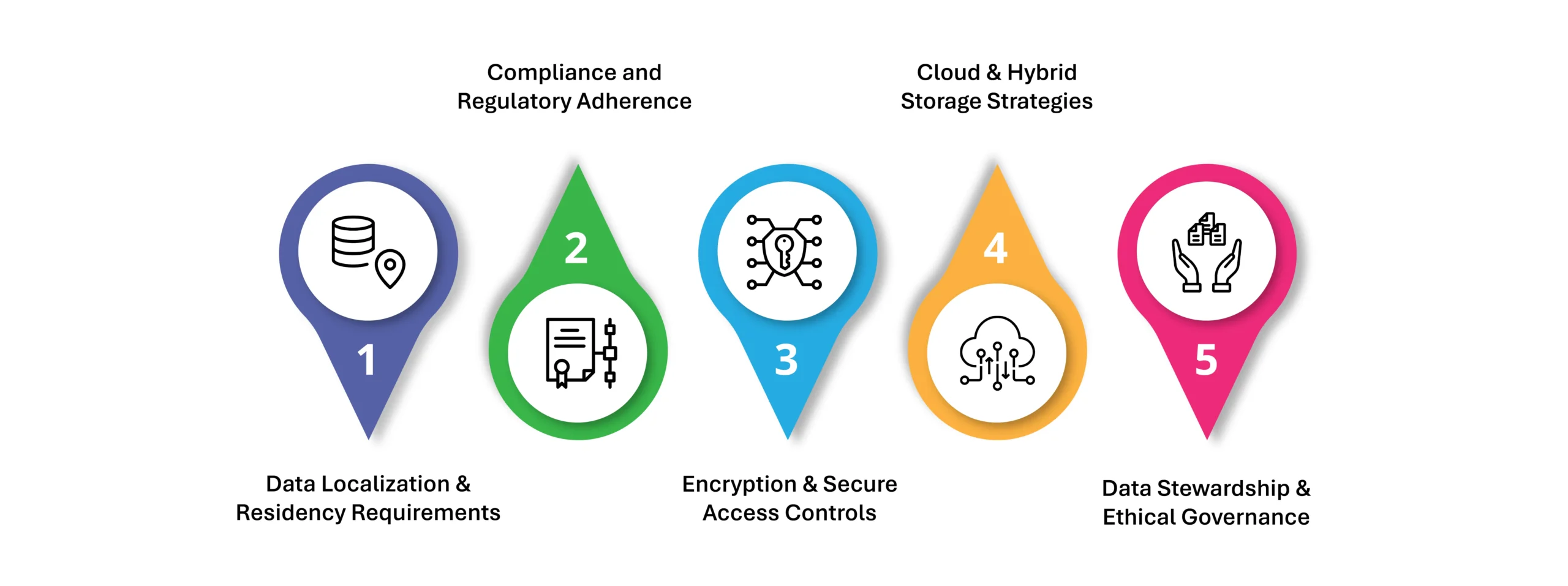What is Data Sovereignty?
Data sovereignty refers to the principle that data is subject to the laws and governance structures of the country in which it is collected, processed, or stored. As nations grapple with the geopolitical implications of big data and cross-border data flows, governments are enforcing regulatory requirements that dictate where and how data should be managed.
With the proliferation of sensitive data across global digital ecosystems, organizations must navigate a complex web of data governance security and compliance policies. From the General Data Protection Regulation (GDPR) in the European Union to the China Cybersecurity Law and India’s Digital Personal Data Protection (DPDP) Act, nations are asserting greater control over data localization to mitigate security risks and protect national interests.
Why is Data Sovereignty Important?
In an era where security breaches and cyber threats have become inevitable, data sovereignty is a crucial pillar of risk management. Organizations handling sensitive information—from financial records to healthcare data—must ensure compliance with regulations while balancing operational efficiency and cross-border collaboration.
Businesses that fail to adhere to data sovereignty mandates risk hefty fines, reputational damage, and restricted access to key markets. Conversely, organizations that proactively integrate data governance management into their operations gain a strategic advantage by demonstrating transparency, trustworthiness, and robust data security practices.
Key Components of Data Sovereignty

- Data Localization & Residency Requirements: Many jurisdictions now mandate that certain categories of data remain within national borders. This means enterprises must implement data classification strategies to determine which datasets require local storage and which can be transferred across borders while remaining compliant.
- Compliance & Regulatory Adherence: Navigating data sovereignty regulations requires a strong data governance strategy that ensures adherence to laws like GDPR, DPDP, and CCPA. Establishing a data security governance framework enables organizations to proactively manage compliance risks and avoid penalties.
- Encryption & Secure Access Controls: To maintain robust data governance, organizations must deploy based access controls, encryption mechanisms, and identity & access management (IAM) solutions to prevent unauthorized access. Zero-trust architectures further enhance security by verifying every access request, reducing vulnerabilities.
- Cloud & Hybrid Storage Strategies: With the increasing adoption of cloud services, businesses must adopt data governance solutions that align with sovereignty laws. This includes working with cloud providers that offer sovereign cloud solutions, ensuring data remains within the legal jurisdiction of its origin.
- Data Stewardship & Ethical Governance: Data stewards play a critical role in ensuring effective data governance by maintaining oversight of data discovery, access policies, and lifecycle management. Organizations must also integrate privacy-by-design principles to safeguard data from regulatory and security risks.
The Future of Data Sovereignty
The future of data sovereignty is rapidly evolving at the intersection of AI-driven compliance, decentralized governance, and national data strategies, reshaping how organizations manage sensitive data in an era of heightened cybersecurity threats and regulatory scrutiny. With AI-powered compliance frameworks, businesses can automate data classification, access control, and policy enforcement, ensuring seamless alignment with data protection laws like GDPR, DPDP, and China’s Cybersecurity Law. Meanwhile, the shift toward self-service data governance is decentralizing control, enabling enterprises to manage data sovereignty in cloud environments while maintaining security and operational agility. As sovereign cloud solutions gain traction to meet data sovereignty regulations, businesses are also embracing zero-trust architectures that reinforce data sovereignty in cybersecurity through encryption, identity verification, and strict access controls. Far from being just a regulatory burden, data sovereignty is emerging as a strategic enabler—organizations that proactively integrate adaptive compliance frameworks, AI-driven governance, and sovereign cloud strategies will not only mitigate risks but also gain a competitive edge by fostering trust, security, and long-term business resilience.
Getting Started with Data Dynamics:
- Read the latest blog: Protect, Preserve, Prosper: Unveiling Five Steps to Ensuring Data Sovereignty in the Banking Industry
- Learn about our Unstructured Data Management Software – Zubin
- Schedule a demo with our team






